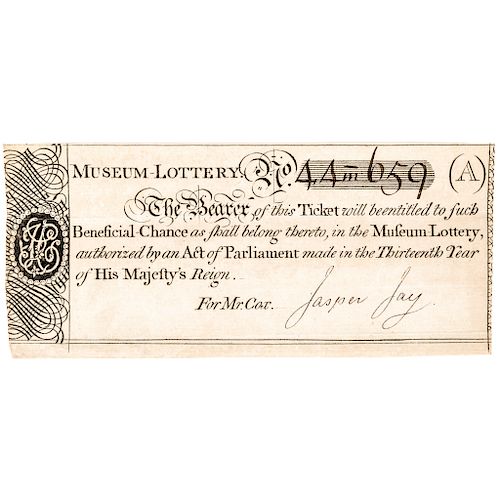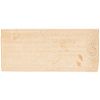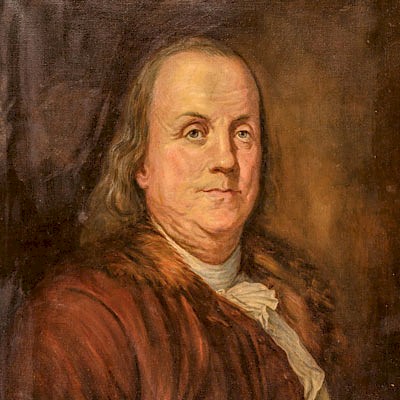(1773) British Museum LOTTERY Ticket held to Fund the British Museums Expansion
Lot 103
Estimate:
$300 - $400
Absentee vs Live bid
Two ways to bid:
- Leave a max absentee bid and the platform will bid on your behalf up to your maximum bid during the live auction.
- Bid live during the auction and your bids will be submitted real-time to the auctioneer.
Bid Increments
| Price | Bid Increment |
|---|---|
| $0 | $10 |
| $200 | $20 |
| $300 | $25 |
| $500 | $50 |
| $1,000 | $100 |
| $2,000 | $200 |
| $3,000 | $250 |
| $5,000 | $500 |
| $10,000 | $1,000 |
| $20,000 | $2,000 |
| $30,000 | $2,500 |
| $50,000 | $5,000 |
| $100,000 | $10,000 |
| $200,000 | $20,000 |
| $300,000 | $25,000 |
| $500,000 | $50,000 |
About Auction
By Early American History Auctions
Aug 24, 2019
Set Reminder
2019-08-24 12:00:00
2019-08-24 12:00:00
America/New_York
Bidsquare
Bidsquare : Autographs, Colonial Currency, Political Americana, Historic Guns
https://www.bidsquare.com/auctions/early-american-history-auctions/autographs-colonial-currency-political-americana-historic-guns-4347
Historic Autographs • Colonial Currency • American Civil War Colonial Era • Revolutionary War • Political Americana • Black History Early American History Auctions auctions@earlyamerican.com
Historic Autographs • Colonial Currency • American Civil War Colonial Era • Revolutionary War • Political Americana • Black History Early American History Auctions auctions@earlyamerican.com
- Lot Description
Colonial America
1773 British Act of Parliament "Museum - Lottery" Ticket
(1773) British Museum "Museum-Lottery" Ticket Signed, "Jasper Jay," Plate A, Britain, Choice Extremely Fine.
Historic Lottery as Authorized by Act of the British Parliament. This impressive boldly printed and ornately designed Colonial Era Lottery Ticket was held to benefit the British Museum in its expansion since the first Lottery to finance the very creation of the British Museum held in 1753. We can date this as being held in 1773 as it states to be "made in the Thirteenth Year of His Majesty's Reign." (which began in 1760, thus this Lottery was held in 1773). This Lottery Ticket is boldly signed by "Jasper Jay" in brown ink and has a wonderful, ornate engraved design for eye appeal and its overall look. A remarkable, very rare pre-Revolutionary War ticket when America was still British, being fully signed and of this vintage in excellent condition.
The British Museum owes much to a scandalously conducted First Lottery to raise funds launched in 1753. Lotteries had been popular since the 16th century and there were state and private lotteries. Most aimed to raise money for the Government and the prizes tended to be annuities.
The British Museum was founded on the collection of Sir Hans Sloane who died in 1753. He left a magnificent collection worth at least 80,000 then, in return for a mere 20,000 to his heirs, his two daughters. The collection was left to the King for the nation, but the King is reported to have said he did not think there was 20,000 in the Treasury, and in any case was not interested. The matter went to Parliament which was very keen to have the collection, but was less enthusiastic about the cost. This was why a lottery was launched.
The lottery was a big scandal. It was to raise 300,000: there were 100,000 tickets at 3 each, paid for in instalments of 1 and later 2. However, virtually all the tickets were sold before they were put on offer to the public. The market was covered especially by a rich financier, Sampson Gideon, and also by one of the four receivers of the lottery money, Peter Leherpe. They managed to sell the tickets in large chunks before the lottery opened. The Act of Parliament which set up the lottery had said that no one person should have more than 20 tickets. Leherpe, however, allowed people to submit a list of fictitious names so that they could buy many more. After two days, the British Museum lottery tickets were said to be selling for a premium of 16 shillings. Various financiers were reselling them at a profit. Gideon himself had more than 5,000 tickets. When he died he left an estate worth more than half a million pounds, and during his lifetime he was so rich that he bankrolled the Government. However, when a Parliamentary inquiry into the affair was held he was in Paris.
The lottery winner is not known, but the winning ticket number was 46885. The British Museum, after the payment of expenses, received 95,194 8s 2d, some of which went towards buying Montague House, the house on the present site into which the various collections went.
- Shipping Info
-
Early American provides in-house worldwide shipping. Please contact us directly if you have questions about your specific shipping requirements.
-
- Buyer's Premium



 EUR
EUR CAD
CAD AUD
AUD GBP
GBP MXN
MXN HKD
HKD CNY
CNY MYR
MYR SEK
SEK SGD
SGD CHF
CHF THB
THB












